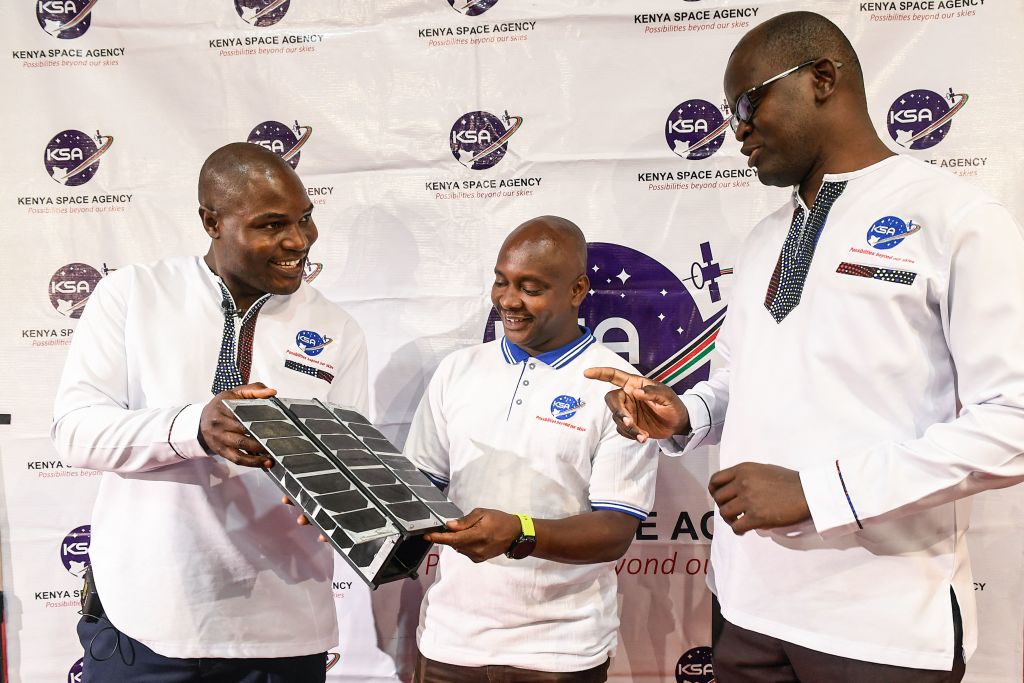ADF STAFF
With the launch of its Gaindesat-1A satellite in August, Senegal joined the growing list of African nations establishing a presence in space.
Senegalese engineers and technicians designed Gaindesat-1A in collaboration with France’s University Space Centre of Montpellier. The project took five years. The launch was the first achievement for SenSAT, Senegal’s budding national space program.
The satellite is a type known as a nanosatellite. It measures about 10 centimeters on a side and was built using commercially available components. Senegal’s government expects to use it to monitor weather and environmental conditions to benefit local farmers.
“After five years of hard work by our engineers and technicians, this achievement marks a significant step toward our technological sovereignty,” Senegalese President Bassirou Diomaye Faye posted on X.
Since South Africa launched the continent’s first satellite in 1999, 16 other countries have joined Africa’s space race. So far, they have put a collective 61 satellites into orbit to perform a variety of tasks, from mapping Ghana’s coastline to providing rural schools with internet connections in Rwanda.
As both the size of satellites and the cost of launching them continues to shrink, the number of African countries finding their place in orbit is likely to grow, according to Kwaku Sumah, founder and managing director at Spacehubs Africa. Others agree.
“Space is critical to national security for African countries in a way that extends far beyond traditional defense operations,” Temidayo Onionsun, managing director of Space in Africa, said during a recent African Center for Strategic Studies (ACSS) webinar on Africa’s growing space program. In regions with vast land masses, porous borders and areas that are hard to reach, satellites can provide real-time surveillance and data collection crucial to security operations, Onionsun said.
While Senegal’s launch illustrates African nations’ ambitions when it comes to space, it also reveals the hurdles they face along the way. Like other African nations, Senegal depended on another entity and nation — in this case SpaceX, operating from the United States — to get its satellite into orbit. Other countries have relied on European, Russian, and Chinese space agencies for launch capabilities.
“We have more companies that are able to build satellites, but they’re struggling to get them into space,” Zolana João, general manager of Angola’s National Space Program Management Office told the recent ACSS webinar audience.
While African nations have designed their own satellites, most have relied on foreign countries for support during the construction phase. That was the case for Kenya’s Taifa-1 satellite, which was constructed in Bulgaria. African nations also rely on foreign technology for the kind of high-resolution imagery needed to detect small-scale illegal border crossings or illegal fishing. Such imagery can cost as much as $25 per square kilometer observed — making it expensive to use routinely.
Once African nations get their satellites into orbit, they must rely on foreign entities to track them and monitor their conditions. When it comes to space domain awareness, African nations remain in the dark, according to João. “We don’t have any capabilities whatsoever of knowing what’s going on with our assets up there,” he said.
While Africa’s space programs currently depend on international cooperation, the long-term goal is to develop the entire spectrum of space-related capabilities, from designing to launching to interpreting the resulting data, according to Brig. Gen. Hillary Kipkosgey, director general of the Kenya Space Agency.
“We do not seek commercial, off-the-shelf solutions and products,” Kipkosgey told the ACSS audience. “We would like to develop our own capabilities.”

